In Manitoba, the legal blood alcohol content (BAC) limit is set at a maximum of 50 milligrams of alcohol per 100 milliliters of blood, which equals a 0.05% BAC.
Please remember that this post’s central insight only provides information on impaired driving in Manitoba. The article does not support drinking a specific quantity and drinking.
It is advisable to be against any actions that cause intoxicated driving. Even if you only drink at the legal limit, booking a cab, Uber, or any designated driver service is advisable for your safety.
It is also a great idea to check the province’s official website for updates about the laws governing drunk driving regularly.
What is the legal alcohol limit for driving in Manitoba?
In Manitoba, driving under the influence of alcohol is strictly regulated to ensure road safety for all. The legal limits are set based on one’s age and the type of driver’s license held. Here is a breakdown of these limits:
- Regular Drivers: The legal Blood Alcohol Content (BAC) limit is 0.05%. This applies to the majority of drivers, emphasizing the importance of responsible drinking if planning to drive.
- Minors (Under 21): For young drivers under the age of 21, Manitoba enforces a zero-tolerance policy. It is illegal to operate a vehicle with any detectable amount of alcohol in your system, ensuring that inexperienced drivers remain completely sober on the road.
Drink and Drive Penalties and Punishments in Manitoba
In Manitoba, the consequences of driving under the influence of alcohol or drugs are severe and immediate. These measures are in place to deter impaired driving and enhance road safety. If you’re operating a vehicle and are stopped by law enforcement, here’s what you need to know about the immediate actions that can be taken against you:
Immediate Consequences under The Highway Traffic Act:
- Immediate Suspension: If police suspect you’re under the influence or you fail sobriety tests, your license can be suspended on the spot.
- Suspicion of drug impairment or failing a drug screening results in immediate action.
- A BAC of .05 or higher triggers immediate consequences.
- Failing a physical coordination test can lead to immediate suspension.
- Refusal or failure to comply with testing demands results in immediate repercussions.
- Tiered Suspensions: Depending on the offense and history within a 10-year period, suspensions increase from 3 days to 60 days.
- First offense: 3-day suspension (7 days if a minor is in the vehicle).
- Second offense: 15-day suspension.
- Third offense: 30-day suspension.
- Four or more offenses: 60-day suspension.
Criminal Charges and Consequences:
Beyond immediate suspensions, criminal charges can be laid, leading to fines, jail time, and driving prohibitions:
- First-time offenders face a minimum fine of $1000, escalating based on BAC levels or refusal to provide samples.
- Repeat offenses could result in jail sentences and extended driving prohibitions.
Vehicle Impoundment:
- Vehicles can be impounded for at least 30 days for BAC over .08 or failing to comply with testing, with increased duration for repeat offenses or refusal to provide samples.
Immediate Roadside Prohibition (IRP):
- Introduced in 2019, IRP imposes monetary penalties and vehicle impoundments for BAC levels of .05 to .079.
- For “fail” levels or refusal of tests, IRP enforces monetary penalties, mandatory ignition interlock use, and suspensions.
Other Considerations:
- Zero tolerance for novice drivers under the Graduated Licensing Program.
- All off-road vehicles are subject to the same penalties.
- Ignition interlock devices are mandatory for convicted offenders, with significant costs for installation and vehicle impoundment.
Important Reminder:
Laws and penalties are subject to change. It’s crucial to frequently check the official state website for the most current information regarding impaired driving laws and penalties in Manitoba. This ensures you stay informed about legal obligations and the potential consequences of driving under the influence.
How Can I Calculate If My Alcohol Blood Limit Is Legal in Manitoba?
In Manitoba, the police employ rigorous methods to determine if a driver is over the legal Blood Alcohol Content (BAC) limit. This includes the use of breath screening devices and, in some cases, blood tests to accurately measure the alcohol concentration in your system. These tests are conducted if you’re stopped under suspicion of impaired driving or at roadside checks.
However, before finding yourself in a situation requiring police intervention, there are ways you can self-assess your BAC to ensure you’re driving responsibly and legally. Here are two recommended methods:
1. Use a High-Quality Alcohol Breathalyzer
A reliable way to estimate your BAC is by using a high-quality alcohol breathalyzer. One of the best options available in Manitoba is the BACtrack S80, known for its professional-grade accuracy. This device is DOT & NHTSA Approved and FDA 510(k) Cleared, making it a trustworthy tool for personal use. I strongly advise keeping one in your vehicle as it can provide a quick and relatively accurate estimation of your BAC, helping you make informed decisions about your ability to drive. Remember, due to the variability of alcohol metabolism among individuals, even this method cannot guarantee 100% accuracy, but it’s a significant step towards safe driving.
2. Utilize a BAC Calculator
Another method is to use a BAC calculator, which I developed alongside other phlebologists, with input from web developers to make it accessible online. This tool considers various factors such as your weight, the amount of alcohol consumed, and the time elapsed since drinking, to provide an estimated BAC level. While this method also cannot assure complete accuracy, it can serve as a valuable resource in understanding how different drinking patterns affect your BAC and, consequently, your legality to drive.
It’s crucial to understand that both methods mentioned above—using a high-quality breathalyzer and a BAC calculator—should be seen as tools to aid in responsible decision-making rather than definitive measures of your fitness to drive. Alcohol affects everyone differently, and numerous factors can influence your actual BAC and impairment level. Therefore, if in doubt, the safest choice is not to drive.
By employing these methods, you’re taking proactive steps to ensure your safety and compliance with Manitoba’s driving laws. However, always err on the side of caution. If there’s any uncertainty about your sobriety, opt for alternative transportation methods to prevent the risk of impaired driving.
Ways to Avoid Driving with a High BAC in Manitoba
Driving under the influence poses significant risks not only to yourself but to others on the road. In Manitoba, as in other places, there are several practical solutions to ensure you get home safely without risking a DUI charge or worse, causing an accident. Here are two effective strategies to consider:
1. Utilize Taxi Services or Ride-Sharing Apps
One of the easiest and most convenient ways to avoid driving after drinking is to use taxi services or ride-sharing apps like Uber. These services offer a safe and affordable way to get home without having to get behind the wheel yourself. For local options, residents of Winnipeg can rely on RIDE ME HOME WINNIPEG, while those in Brandon can opt for 4-Way Taxi. These local companies provide reliable transportation services tailored to the needs of their communities, ensuring that you can enjoy your night out without worrying about how to get back safely.
2. Order a Designated Driver Service
If you find yourself in a situation where you’ve driven to a location and then consumed alcohol, leaving your car behind might not be your preferred option. Thankfully, designated driver services offer a solution. Companies like Silver Fox Driving Services in Winnipeg and A Canadian Designated Driver Service, Barrie & Area in Brandon provide drivers who can drive you home in your own vehicle. This way, you and your car get home safely, eliminating the risk of leaving your vehicle unattended or driving under the influence. To find a designated driver service in your area, a quick Google search for “designated driver service” followed by your city name will provide you with options.
Sticking to Manitoba Impaired Driving Regulations: Sad Statistics
In 2021, the Manitoba RCMP reported 1,848 Criminal Code offenses and immediate roadside suspensions due to impaired driving. This underscores the critical need for awareness about the legal and safe practices surrounding alcohol consumption and driving in Manitoba, including understanding the penalties for impaired driving.
While Manitoba law specifies a legal BAC limit, the safest option is always to avoid driving if you’ve consumed alcohol. Options like taking a cab, utilizing ride-hailing services, or arranging for a designated driver provide safe alternatives to ensure you get home without compromising safety. Even if driving cannot be avoided, ensuring your BAC is within legal limits is essential, and using a reliable breathalyzer can offer a helpful assessment.

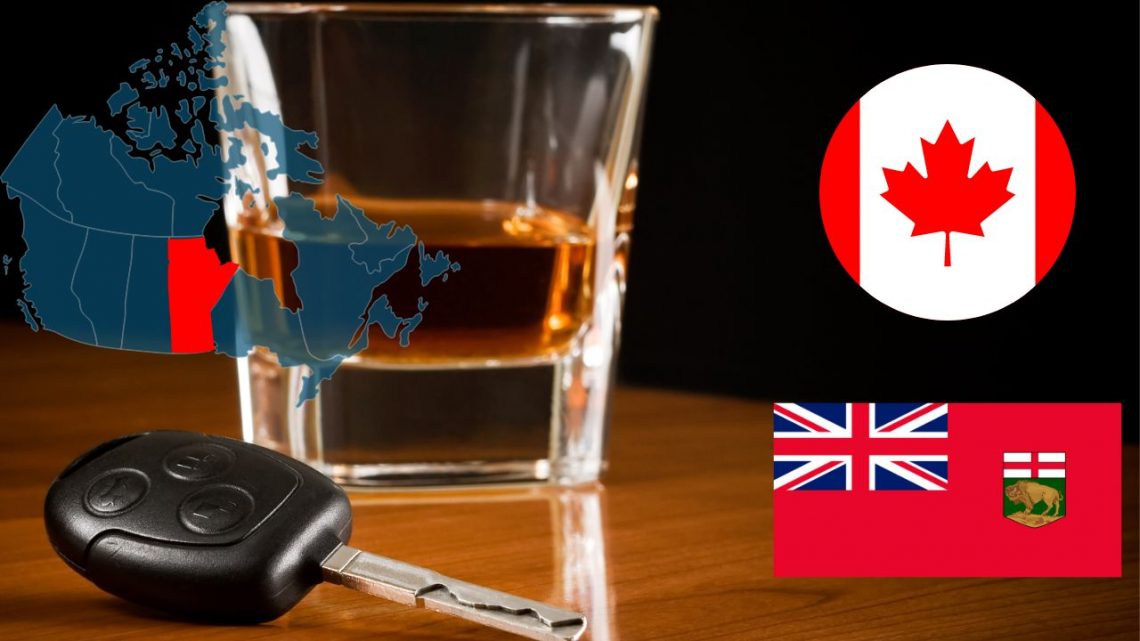
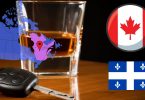
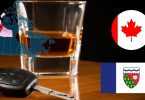
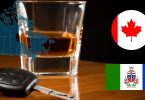
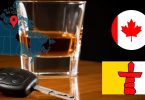
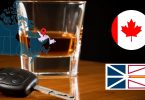
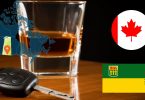
Leave a Comment
You must be logged in to post a comment.